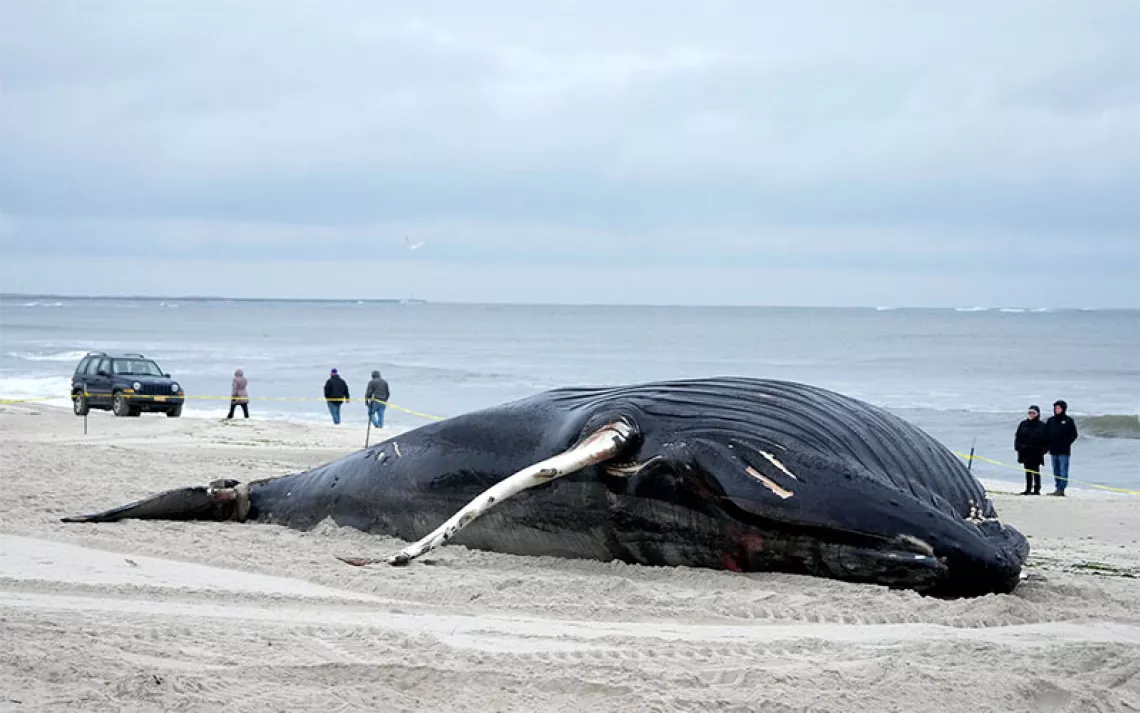Opening a New Chapter in the Fight Against Fossil Fuels
It’s time to shut off the financial spigot that goes from Wall Street to the wellheads

Activists block a downtown Seattle street in protest of Chase bank funding fossil fuel companies, in February 2020. | Photo by Elaine Thompson/AP
The opinions expressed here are solely those of the writer and do not necessarily reflect the official position of the Sierra Club.
This opinion essay was originally published by Common Dreams.
Over the past two years, the State Financial Officers Foundation―a dark money group supported by climate-denying organizations such as the Heartland Institute and the American Legislative Exchange Council―has organized Republicans to attack climate financial regulation, defeat the nominations of key Biden regulators, and divest state money from BlackRock in retaliation for its climate commitments. This year alone, Republicans have introduced more than 100 bills in 23 states that are designed to punish financial companies for taking action on climate.
This is the latest evolution of the GOP’s decades-long strategy to slow the transition off fossil fuels―an all-out attack on financial institutions they claim are “boycotting” fossil fuels. And it’s working. The world’s largest banks and investors have been falling over themselves to pledge loyalty to the fossil fuel industry.
Given this change of political terrain, the climate movement’s strategy to end fossil financing needs to evolve. Every year since 2017, there have been national days of actions targeting banks funding fossil fuels. During the height of the resistance to Line 3, there were actions at the banks financing the pipeline in over one hundred cities on a single day. Protestors have shut down streets and banking centers in New York, San Francisco, and Seattle time and time again. There is still a need for these kinds of awareness-raising actions—and if you’re not already plugged into Third Act’s national day of action on March 21, you should find an action near you and get involved.
But alone, these kinds of actions aren’t enough. In response to an organized and strategic opposition, we need to refocus our strategy in several key ways. The most pressing of which is right around the corner: shareholder season.
Shareholder season is the time of year when every publicly traded company in America has their annual general meeting. At these general meetings, investors vote on a variety of proposals introduced by fellow shareholders. Proposals can be about anything related to the way a company runs its business―executive pay, board diversity, the gender pay gap. In recent years, banks have faced shareholder proposals around their financing of fossil fuels. And 2023 will be no different.
In April and May, investors in Wall Street banks will vote on at least three shareholder proposals related to climate. One will call for a time-bound phase-out of financing for companies engaged in fossil fuel expansion. New York City and New York State have filed a series of anti-greenwashing resolutions that would push banks to use “absolute emissions” metrics when setting their climate targets for the energy sector, rather than the weaker “carbon intensity” metrics they’ve been using. The third resolution will push banks to create a comprehensive plan to achieve the 2030 emissions reduction targets they’ve already set.
These votes are some of the most important climate votes that you’ve never heard of. How they pan out will go a long way to determining how quickly big banks wind down their financing for coal, oil, and gas. Shareholders, after all, are literally the people who own the company.
Unfortunately, in these elections, it’s not a democratic system where one person gets one vote. But there is one clear way that we can help influence the vote: public pensions.
Public pensions are some of the biggest investors in the country. California’s state pensions alone manage over $740 billion. Last year, the public pensions in many Democratic states, including California, Washington, Colorado, New Jersey, Maryland, New Mexico, and Maine, voted against a resolution at US banks calling for an end to financing of fossil fuel expansion. Those six pension funds alone represent more than $1.2 trillion in investment capital, a significant percentage of the vote at many companies.
The good news? Public pensions manage public money. They are often overseen by elected officials. That means that they are accountable to their constituents and to everyday members of the pension fund: the teachers, public employees, and firefighters whose interests they are supposed to represent when casting their votes. This spring, it’s the climate movement’s job to organize constituents and pension fund members across the country to make sure that public money casts its vote for climate justice this shareholder season.
 The Magazine of The Sierra Club
The Magazine of The Sierra Club



